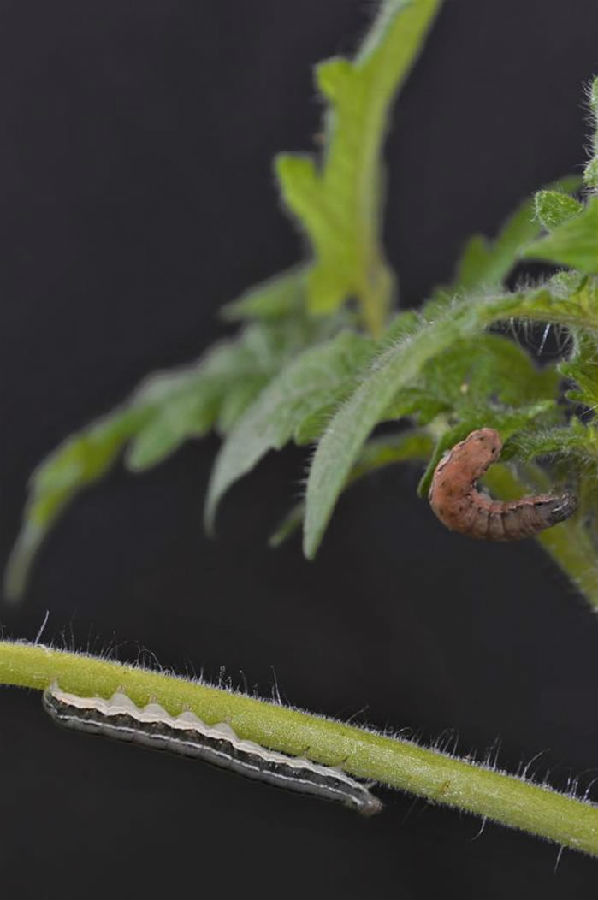(单词翻译:单击)
听力文本
This is Scientific American — 60-Second Science. I'm Emily Schwing.
Ben Van Allen collects caterpillars. While doing postdoctoral research at Louisiana State University, Van Allen saw that some of the caterpillars were having others for lunch. Rather than cry over his losses, Van Allen took advantage of the cannibalism for his research.
"Generally speaking, it's nutritious to eat the same species, because they have all the nutrients that are already inside you, so it's an easy-to-process meal."
"It also reduces the amount of competition you are going to experience – it's just one fewer individual trying to eat the same food you are, in the same area. And it's usually easy to find members of the same species too, since they live in the same place you do."
Van Allen and colleagues collected the caterpillars to study disease transmission in lepidoptera—moths and butterflies. After observing the cannibalism they wondered if their subjects' appetite for each other might be dangerous for the individual—if it ate an infected cousin—but benefit the group—by removing the infected individual from the population.

"Our main point is that, while that is an individually risky thing for a cannibal, as populations are more cannibalistic, they actually prevent diseases from getting into the population in the first place."
Van Allen's study is in the journal American Naturalist.
It was released at the same time as a study in the journal Nature Ecology & Evolution that showed that chemicals produced by plants can ward off caterpillars, by inducing the caterpillars to eat each other instead of the plants.
"It would be kind of an ironic thing, if a disease was coming into this caterpillar population and the plants caused them to become more cannibalistic and that prevented the disease from coming in and actually ended up worse for the plant than it was in the first place."
Worse for the plant because the cannibal behavior caused the caterpillar population to wind up healthier—and hungrier.
Thanks for listening for Scientific American — 60-Second Science Science. I'm Emily Schwing.
参考译文
这里是科学美国人——60秒科学。我是埃米莉·施温。
本·范·艾伦喜欢收集毛虫。在路易斯安那州立大学做博士后研究时,范·艾伦亲眼看到一些毛虫把同类当午餐吃掉。范·艾伦并没有因损失毛虫而哭泣,而是利用这种同类相食现象来进行研究。
“一般来说,吃同类可获得丰富的营养,因为同类含有已在毛虫体内的所有养分,所以很容易消化吸收。”
“同类相食还能为毛虫减少未来竞争对手的数量,吃掉一只同类,就等于少了一个在同一地区和你争夺同一种食物的个体。而且由于都生活在同一个地方,所以通常很容易找到同类。”
范·艾伦和同事收集毛虫,以研究飞蛾和蝴蝶等鳞翅目昆虫间的疾病传播。在观察同类相食现象之后,他们想知道毛虫进食同类的欲望对个体来说是否存在危险,比如毛虫可能会吃掉感染疾病的表亲,当然这对群体来说是有益的,因为群体中的染病个体被清除掉了。
“我们的主要观点是,虽然同类相食对个体来说存在风险,但是由于毛虫种群同类相食的情况越来越普遍,实际上这可以从一开始就阻止疾病在种群内的传播。”
范·艾伦的研究结果发表在《美国自然主义者》期刊上。
在他发表研究的同时,《自然生态与进化》期刊上发表的一项研究表明,植物产生的化学物质能避免被毛虫食用,这种化学物质会诱导毛虫去食用同类而不是植物。
“这有点儿讽刺,如果一种疾病正在进入这种毛虫种群,而植物令毛虫更容易同类相食,从而阻止该疾病进入该种群,最终会使植物的生存状况比以前更糟。”
之所以对植物来说会变得更糟,是因为同类相食行为最终会导致毛虫变得更健康,而且食欲也更佳。
谢谢大家收听科学美国人——60秒科学。我是埃米莉·施温。
译文为可可英语翻译,未经授权请勿转载!
重点讲解
重点讲解:
1. take advantage of 利用;
例句:You may wish to take advantage of our instructional session.
你应该充分利用我们的教学课程。
2. in the first place 起初;一开始;
例句: don't think we should have been there in the first place.
我认为我们从一开始就不该在那儿。
3. ward off 避开,躲开,防止(危险、疾病等);
例句:She may have put up a fight to try to ward off her assailant.
她可能进行了顽强的反抗,试图击退袭击者。
4. wind up 最终沦落到;最终落得;(以…)告终;
例句:Both partners of the marriage wound up unhappy.
最后婚姻双方都不幸福。


